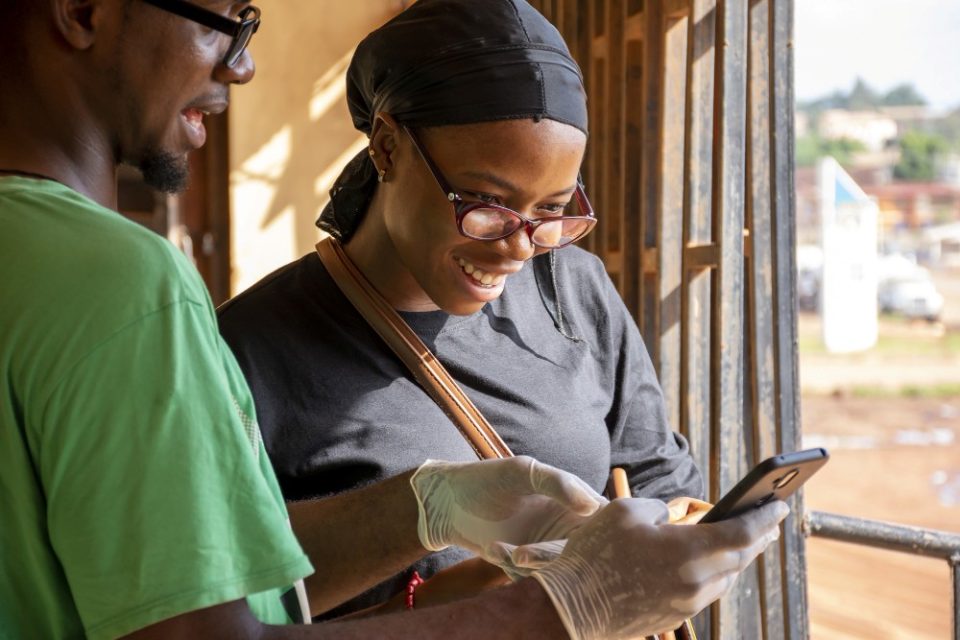Introduction: The High Cost of Sending Money Home
Sending money internationally is a vital lifeline for millions of families worldwide. For many South Sudanese living abroad, sending funds back home is essential to support loved ones, pay for education, healthcare, and basic needs. However, the process of sending money to South Sudan is anything but simple or affordable. High fees, slow transfers, and limited access points can turn an act of care into a frustrating experience.
In this article, we’ll explore why Western Union—while widely known and used—is often not the best choice for sending money to South Sudan. We’ll also introduce Pesabase, a modern remittance platform that is transforming the money transfer landscape with faster, cheaper, and more accessible solutions built especially for African markets like South Sudan.
Why Sending Money to South Sudan Is So Complicated
South Sudan faces unique financial challenges. Its banking and financial infrastructure remain underdeveloped due to ongoing political instability and economic hardships. Many areas lack formal banks or reliable financial institutions, making access to financial services difficult.
Sending and receiving money within this context is often expensive, slow, risky, and geographically limited. This situation complicates life for families relying on remittances and frustrates those trying to send help from abroad.
The Western Union Problem: Expensive and Inefficient
Western Union is a giant in the global money transfer space, with a vast network of agents worldwide. For many, it is the default choice when sending money internationally. However, when it comes to South Sudan, Western Union often falls short.
One of the biggest drawbacks of using Western Union for South Sudan is the exorbitant fees. They can range anywhere from 10% to 30% of the amount sent. To put this in perspective: if you send $100, your loved ones might only receive $70 after fees.
For families depending on every dollar to cover essentials such as food, healthcare, or school fees, this loss is significant and unacceptable.
Despite promises that transfers happen “within minutes,” many users experience delays of several days. These delays stem from weak banking infrastructure, verification processes, and logistical challenges on the ground.
Even after the money arrives, recipients in South Sudan often face difficulties accessing it. Western Union agents may be few and far between, requiring recipients to travel long distances—sometimes in unsafe conditions or at a cost that eats into the funds sent.
Pesabase: A Smart, Blockchain-Powered Alternative
Enter Pesabase—a modern financial platform specifically designed to address the challenges of remittances in Africa and underserved markets like South Sudan. By combining cutting-edge blockchain technology with local accessibility, Pesabase is redefining what sending money home looks like.
Pesabase works by recording transfers on a decentralized, secure ledger, ensuring transactions are nearly instantaneous and highly transparent. It partners with agents and mini-banks spread across South Sudan, enabling recipients to access funds nearby without traveling far. Whether via smartphone apps or simple USSD codes, users can send, receive, and track money transfers easily.
It’s simply the best alternative to Western Union in South Sudan.
Why Pesabase Is a Game-Changer
Pesabase dramatically cuts costs. Charging just 1.5% to 3% in fees, it can save families up to 90% compared to Western Union. For example, if you send $100, your recipient could receive $97 instead of just $70. Those 27 USD represent the average monthly of a full year!
The use of blockchain technology enables near-instant transfers. This speed is critical, especially when families face urgent needs or emergencies.
Every Pesabase transaction is traceable and verified on the blockchain, greatly reducing the risk of fraud and increasing trust for both senders and recipients.
Pesabase is more than just a remittance service. It’s laying the groundwork for full financial inclusion in South Sudan by building a crypto-friendly bank in Juba. In time, Pesabase plans to offer microloans, credit accounts, and business funding solutions. This vision aims to empower communities economically, providing tools that go beyond money transfers.
Introducing the PESA Token: Crypto With Purpose
Alongside the Pesabase platform, there is an exciting investment opportunity: the PESA Token.
The PESA Token is used for payments and services within the Pesabase network. Regular buyback and burn programs help reduce supply and potentially increase token value. Users can stake PESA tokens to earn rewards and gain early access to platform features. As Pesabase grows in adoption, PESA tokens offer an opportunity for investors interested in African RWA cryptocurrency projects to invest in.
Whether you’re sending money or investing in the future of financial services in Africa, PESA provides a meaningful way to participate in this transformation.
Quick Comparison: Pesabase vs. Western Union
Choosing the right service to send money to South Sudan can make a big difference in cost, speed, and reliability. While Western Union has long been the go-to option, newer platforms like Pesabase offer modern solutions that address many of its limitations.
The chart below highlights the key differences between Western Union and Pesabase, helping you see why more people are making the switch.
Western Union vs. Pesabase Comparison Chart
| Feature | Western Union | Pesabase |
|---|---|---|
| Fees | 10% – 30% | 1.5% – 3% |
| Delivery Time | Minutes to days | Near-instant transfers |
| Accessibility | Limited agent locations | Agents, mobile platforms, and mini-banks in South Sudan |
| Technology | Traditional banking systems | Blockchain-based (highly secure) |
| Security | Standard banking security | Enhanced security via blockchain |
| Investment Opportunity | None | Offers PESA Token for investment |
Why This Matters: The Impact on South Sudan
Remittances are a financial lifeline in South Sudan, contributing around 24% of the country’s GDP. For families struggling to survive, losing up to 30% of this support to fees can be devastating.
Pesabase changes the game by ensuring more money reaches those who need it, faster and safer. Beyond remittances, Pesabase’s efforts toward financial inclusion offer a hopeful path for South Sudan’s economic growth.
Final Thoughts
Western Union has long been the go-to option for sending money to South Sudan. But with fees as high as 30%, slow transfers, and limited agent networks, it’s clear that better alternatives are needed.
Pesabase is leading a new wave of remittance solutions that are affordable, secure, and tailored to the realities on the ground in South Sudan. Coupled with the PESA token’s investment potential, Pesabase not only helps families today but also fosters the financial ecosystem of tomorrow.
Whether you’re supporting loved ones or looking to empower South Sudan’s future, Pesabase offers a smarter, more inclusive way to send money home.
References
- Western Union vs. MoneyGram Fees – Investopedia
- Pesabase Overview – pesabase.com
- Africa Outlook: Blockchain and Remittances
- TechBullion: Best Channels for Sending Money to South Sudan
- PESA Token Whitepaper – pesatoken.io
- Remittances and South Sudan GDP – Benzinga
![]()


